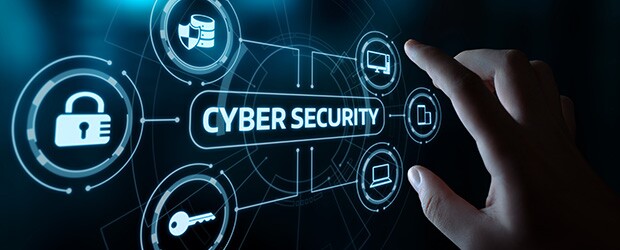Explain the Importance of Cybersecurity and Stay Safe Online
The importance of cybersecurity to protecting digital presence is essential to safeguard your personal information, finances, and reputation.

In today's digital age, where technology has become an integral part of our lives, the importance of cybersecurity cannot be overstated. With the increasing prevalence of online threats and cyberattacks, protecting your digital presence is not just a matter of convenience but a necessity. In this blog post, we will delve into the significance of cybersecurity and provide you with valuable tips on how to stay safe online.
Understanding the Importance of Cybersecurity
What is Cybersecurity?
Cybersecurity is the practice of protecting computer systems, networks, and data from theft, damage, or unauthorized access. It encompasses a wide range of strategies, technologies, and best practices designed to safeguard your online presence and digital assets.
The Importance of Cybersecurity
- Protection Against Data Breaches: One of the most significant reasons to prioritize cybersecurity is to prevent data breaches. In recent years, we've witnessed numerous high-profile data breaches, affecting millions of individuals and organizations. These breaches can lead to the exposure of sensitive information, including personal details, financial data, and even trade secrets. Cybersecurity measures help mitigate these risks.
- Financial Security: Cyberattacks can have dire financial consequences. Ransomware attacks, for example, can cripple businesses by encrypting critical data and demanding a hefty ransom for decryption. Investing in robust cybersecurity can save you from such financial catastrophes.
- Preserving Reputation: A data breach not only affects your finances but can also tarnish your reputation. Customers and clients trust you with their information, and a breach can erode that trust. A damaged reputation can be challenging to recover from, making cybersecurity a crucial aspect of maintaining trust.
- Protection Against Identity Theft: Cybercriminals often target individuals to steal their identities, using the stolen information for fraudulent activities. Proper cybersecurity measures can help safeguard your personal information and prevent identity theft.
- National Security: Beyond individual and business concerns, cybersecurity is vital for national security. Cyberattacks can target critical infrastructure, government systems, and military operations, posing a threat to a nation's stability and safety.
- Legal and Regulatory Compliance: Many industries are subject to strict cybersecurity regulations. Failing to comply with these regulations can result in legal repercussions and hefty fines. By prioritizing cybersecurity, you ensure that your organization complies with these laws.
Staying Safe Online by Understnding the Importance of Cybersecurity
Now that we understand the importance of cybersecurity, let's explore some practical tips on how to stay safe online:
1. Strong and Unique Passwords
Passwords are the first line of defense against unauthorized access. Create strong, complex passwords that combine uppercase and lowercase letters, numbers, and special characters. Avoid using easily guessable information like birthdays or common phrases. Additionally, use a unique password for each online account to prevent a domino effect if one account is compromised.
2. Two-Factor Authentication (2FA)
Enable 2FA wherever possible. This adds an extra layer of security by requiring you to provide a second form of verification, such as a one-time code sent to your mobile device, in addition to your password.
3. Keep Software Updated
Regularly update your operating system, software applications, and antivirus programs. Software updates often contain security patches that address known vulnerabilities. Cybercriminals exploit these vulnerabilities, so keeping your software up to date is crucial.
4. Be Cautious with Emails
Phishing emails are a common method used by cybercriminals to trick individuals into revealing personal information or downloading malware. Be wary of unsolicited emails, especially those with suspicious links or attachments. Verify the sender's identity and avoid clicking on any suspicious content.
5. Use Secure Wi-Fi
When connecting to public Wi-Fi networks, be cautious. Avoid accessing sensitive information when using public Wi-Fi, as these networks are often less secure. If necessary, consider using a Virtual Private Network (VPN) to encrypt your internet connection.
6. Regularly Backup Your Data
Frequent data backups are essential in case of ransomware attacks or data loss due to hardware failures. Store backups in a secure location, such as an external hard drive or cloud storage, and ensure they are regularly updated.
7. Educate Yourself
Stay informed about the latest cybersecurity threats and best practices. The more you know, the better prepared you'll be to identify and respond to potential risks.
8. Be Wary of Social Engineering
Cybercriminals often employ social engineering tactics to manipulate individuals into revealing sensitive information. Be cautious when sharing personal information, both online and offline, and avoid sharing confidential data with unknown individuals.
9. Secure Your Devices
Ensure that your devices, including smartphones and tablets, are protected with a PIN, password, or biometric authentication. Consider enabling remote tracking and wiping capabilities to locate and erase your device if it's lost or stolen.
10. Monitor Financial Statements
Regularly review your bank and credit card statements for any unauthorized transactions. The sooner you detect and report suspicious activity, the better chance you have of minimizing potential financial losses.
11. Install Reliable Antivirus Software
Invest in reputable antivirus and anti-malware software to protect your devices from malicious software. Keep these programs up to date to ensure they can effectively detect and remove threats.
12. Practice Safe Social Media Habits
Be mindful of the information you share on social media platforms. Cybercriminals can use publicly available information to craft convincing phishing attacks or target you for identity theft.
13. Secure Your Router
Change the default password on your home Wi-Fi router and enable encryption (WPA3 or WPA2) to prevent unauthorized access to your network.
14. Use Encrypted Communication
When communicating online, especially for sensitive information, use secure and encrypted channels. End-to-end encrypted messaging apps can help protect your conversations from interception.
15. Report Suspicious Activity
If you encounter any suspicious online activity or believe you have been a victim of cybercrime, report it to the appropriate authorities or organizations. Prompt reporting can help prevent further harm and assist in apprehending cybercriminals.
In conclusion, the importance of cybersecurity in our increasingly digital world cannot be overstated. Protecting your digital presence is essential to safeguard your personal information, finances, and reputation.
By following these tips and staying vigilant, you can significantly reduce your risk of falling victim to cyberattacks. Remember that cybersecurity is an ongoing process, and staying informed about the latest threats and best practices is key to maintaining your online safety. Stay safe, stay secure!
What's Your Reaction?



















